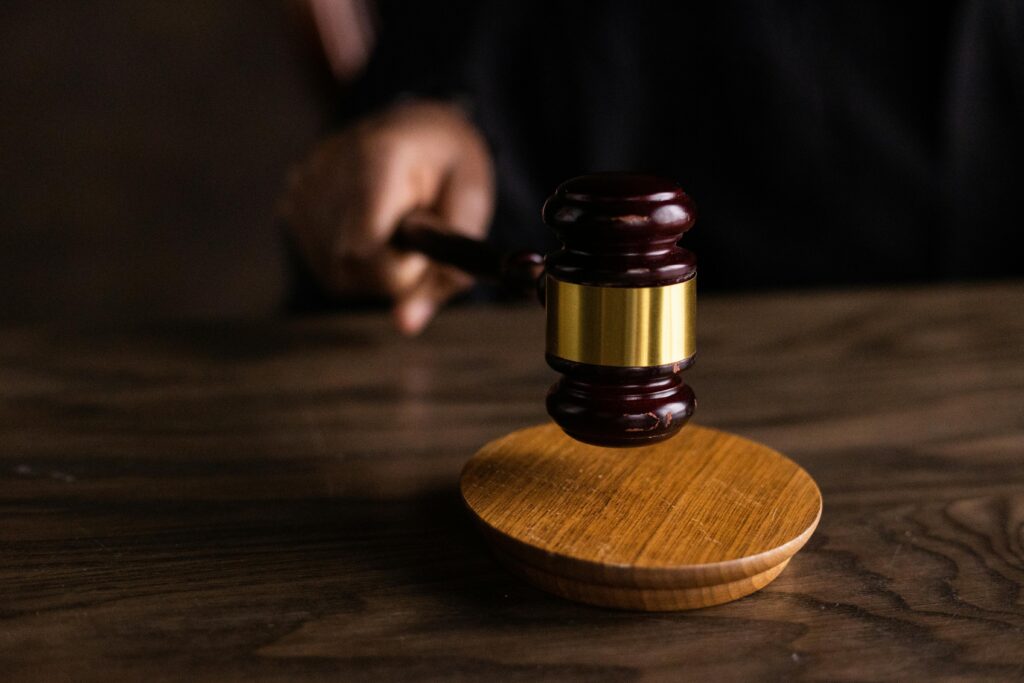INTRODUCTION:
This case, Inter Ikea Systems BV vs. I Key Home Studio LLP and Ors. has dealt with for permanent injunction and consequential reliefs filed by Inter IKEA Systems B.V., the registered proprietor of the world-famous trademark ‘IKEA’, against IKey Home Studio LLP (defendant no. 1) for infringement and passing off of the trademark through the use of a deceptively similar mark ‘IKEY’, including in domain names and on business signages. The dispute revolves around the iconic and widely recognized “IKEA” trademark, which has achieved not only commercial success but also a substantial reputation for quality and innovation in the home and lifestyle goods sector, both globally and in India.This brief addresses the factual background, legal issues, arguments raised, and the court’s approach that were intended to balancing the interests of trademark proprietors with those of new market entrants within the framework of Indian trademark law.
FACTS:
Trademark History: The plaintiff-en-counter “IKEA” mark in 1943. It is one of those known, invented marks, set up e.g. in India for home interior and lifestyle goods. The plaintiff holds numerous registrations for IKEA, both in English and vernacular, in different classes.
Detection of Infringement: In the course of routine review of the Trade Marks Journal in November 2022, the plaintiff found five trademark applications filed by Defendant No. 1 under the mark IKEY, in Classes 11, 19, 21, 35, and 39. The applications claimed use since February 2017 and were published in Journal No. 2073 (October 2022). The plaintiff sent out a cease-and-desist letter. Defendant responded denying similarity and also raised the plea of honest adoption.
Additional Developments: Plaintiff filed oppositions to the trademark applications. Hearings were set, and in that act of non-appearance by the defendants, the five applications were abandoned in April 2024. Plaintiff later came across two more applications by defendant (Classes 20 & 41) and opposed these as well (pending as of the date of the suit).
Investigation Outcomes (May 2024): Investigation Findings (May 2024): The Plaintiff sent an investigator to the Defendant No. 1’s official site (ikeyllp.com) as well as the business premises. The investigator found a more prominent display of the mark “IKEY” (without “Home Studio,” or any other qualifiers) on the building façade, banners, reception, price tags, and other forms of stores’ branding. Third-party brand products were displayed with the brand label of IKEY. The Defendant’s representative (Mr. Nihal) conceded that the Defendant employs more than 50 workers.
ISSUES RAISED:
- Whether the use of the mark “IKEY” by the defendants infringes the registered trademark “IKEA”.
- Whether the mark “IKEY” amounts to passing off the defendant’s products as those of the plaintiff and selling of third party products banking upon the plaintiff’s goodwill.
- Whether the plaintiff is entitled to interim injunction and suspension of the defendant’s domain name.
- Whether the balance of convenience and irreparable injury lie in favour of the plaintiff.
PLAINTIFF’S ARGUMENTS:
- Ownership, Fame, and Distinctiveness of the IKEA Trademark: Inter IKEA Systems B.V. is the founder and registered proprietor of the internationally reputed and well-known trademark ”IKEA“, which has been used ever since the year 1943.
The IKEA mark:
- Is unique, coined, and invented, having no dictionary meaning, thereby inherently distinctive.
- It is protected by various Indian trademark registrations (in English as well as in vernacular scripts).
- It has been declared well-known in many countries including China, Chile, Indonesia, Italy, Kazakhstan, EU, Turkey, and Vietnam, and also recognized by the WIPO Arbitration and Mediation Center.
- Is recognized worldwide in respect of furniture, home interior products, and lifestyle goods being marketed through exclusive franchisers and platforms.
- Strong Prior Use, Brand Equity & Secondary Meaning
The Plaintiff issues a statement to the effect that the IKEA mark has:
- Massive brand recognition and consumer goodwill.
- Secondary meaning, such that the word, ”IKEA,” denotes exclusively the plaintiff’s business operations and quality…
- A strong brand association even in India due to its presence both online and offline.
- The use of “IKEY” by the respondent No. 1 is deceptively similar to IKEA and can neither be coincidental nor accidental:
The first defendant IKey Home Studio LLP has adopted and is using the “IKEY” mark, both as a bare mark and in the trade name “IKEY Home Studio”.
The plaintiff maintains that:
- “IKEY” is phonetically, structurally, and visually similar to “IKEA”.
- Such similarity cannot be merely accidental and clearly indicates intent to copy.
- Such similarity in the same sector of goods (interior and home solutions) creates a likelihood of confusion and deception.
- The Trademark Applications are filed by Malafide Intention :
Defendant No. 1 filed 5 trademark applications in February 2022 under Classes 11, 19, 21, 35, and 39, all for the mark “IKEY”.
They were discovered by Plaintiff only in November 2022, after which:
- A letter of cessation was sent;
- The Defendant denied similarity, alleged bona fide adoption, and refused to withdraw the marks; and
- The plaintiff proceeded to file formal oppositions to all five.
Defendant did not appear in opposition proceedings; all five applications were abandoned in April 2024.
In February 2024, Defendant filed two more applications under Classes 20 and 41, which are also opposed by the Plaintiff and now pending.
- Commercial Use Established via Investigation – Not Mere Intent to Register:
An independent investigator appointed by the plaintiff in May 2024 discovered the following evidence of commercial use of the mark:
- Website: https://ikeyllp.com
- Unique Domain Name: Hosted under the domain ikeyllp.com presumably to provide maximum emphasis on the term “IKEY.”
- Display Catalogue of Home Interior Products: Various brands from third parties.
Physical Premises:
- The Investigator visited the showroom which is listed on the website.
- Large signboards were seen displaying merely the word “IKEY” without even “Home Studio” or a tagline.
- Posters, banners, and price tags branded with “IKEY” were observed.
- It was confirmed by a staff member that there exists a fully functional business with over 50 employees.
- Displays of various third-party branded products for sale under IKEY-branded labels were observed.
- Dealing in Third-Party Goods Aggravates Consumer Confusion :
- The Defendant, while not manufacturing, is aggregating and selling third-party goods (tiles, sanitary ware, etc.) under the banner of “IKEY”.
- The Plaintiff says that this wrongfully gives the commercial impression that:
- The Defendant is associated with or authorized by IKEA.
- The Defendant is a franchisee or official reseller of IKEA.
- These products are said to be endorsed by IKEA, especially when third-party products carry the “IKEY” tag on their price labels.
The use of IKEY as a commercial wrapper for others’ goods is considered in the highest degree of deception and dishonour.
- Domain Name Abuse – ikeyllp.com ; The Defendant’s domain ikeyllp.com incorporates the infringing mark and is being used to promote the same set of goods/services IKEA is known for:
According to the Plaintiff, this amounts to cybersquatting, and this domain usage:
- Dilutes the online brand identity of IKEA.
- Misleads consumers regarding the origin of goods/services.
- Aggravates the threat of deception online.
- Legal Basis for Relief:
The Plaintiff contends that the conduct of the Defendants constitutes:
- Infringement under Sections 29(1), 29(2), and 29(4) of the Trade Marks Act, 1999.
- Passing off, in that it misrepresents the source of goods or services.
- Dilution of a well-known mark, recognized under Indian and international law.
- Cybersquatting through misuse of IKEA goodwill in a confusingly similar domain-name.
- Prayer for Interim and Final Reliefs:
The Plaintiff sought the following interim reliefs:
Ex-parte ad-interim injunction restraining the use of:
- “IKEY”
- “IKEY Home Studio”
- Domain: ikeyllp.com
- All logos and representations deceptively similar to “IKEA”
- Suspension of the defendant’s domain.
- Disclosure of registrant information of the domain from Defendant No. 2 (Registrar)
DEFENDANT’S ARGUMENTS :
- Denied similarity between “IKEY” and “IKEA”.
- Claimed honest and bona fide adoption.
(Note: Defendant did not appear before the Court despite being served.)
JUDGEMENT:
The Court held that the plaintiff successfully established a prima facie case.
The court awarded Ex-parte ad-interim injunction against Defendant No. 1.
Key Directions:
- Defendant No. 1 is prohibited from: The mark “IKEY” and “IKEY Home Studio” together with any confusingly identical marks are forbidden for Defendant No. 1 to use.
- The mark cannot be utilized by the defendant in their business name or domain name or signboard.
- The domain “ikeyllp.com” must be suspended by order of the court. Domain name registrant details must be disclosed by the court order.
The court scheduled the suit for another hearing on 9 May 2025.
Order XXXIX Rule 3 CPC compliance must occur within one week as part of the order.
The Court stated that the similarity between “IKEY” and “IKEA” also exists visually and phonetically. IKEA is a globally recognised brand and broadly famous as well (Even in India). Without these qualifying terms when using “IKEY”, it can create confusions. The mark may be used in online and offline communication, which also multiplies the likelihood of being deceived. This course of conduct by the defendant “demonstrates that they were not operating in good faith.” It also has the possibility of banking on the goodwill of IKEA making people believe that the third party goods sold are endorsed by IKEA. This weighed convenience heavily in the plaintiff’s favour, and significant harm to their business or brand interests would result absent an injunction.
CONCLUSION:
The Delhi High Court hence found merit in IKEA’s claim of trademark infringement and by IKey Home Studio LLP. Because of the deceptive similarity and evidence of malafide intent, the Court granted interim relief to protect the plaintiff’s rights and reputation. The matter will proceed further for final adjudication, but the interim order has strongly favoured the plaintiff.The Court’s findings highlight the significance of protecting existing trademarks against appropriation by unfair commercial practices and demonstrates judicial intolerance against mala fide adopting and cybersquatting. The plaintiff was granted interim relief to protect its legal, commercial, and reputational interests until the broader issues could be resolved, which indicates the strength of the rights possessed by internationally known brands under Indian law.


